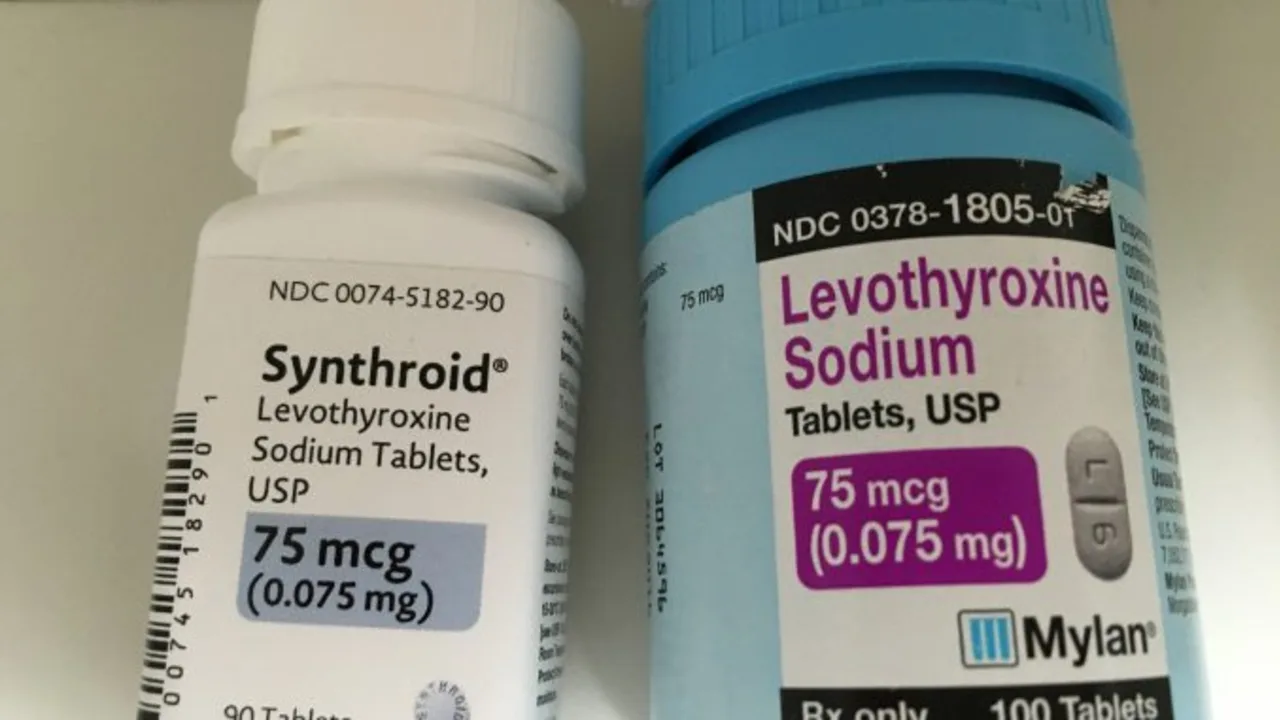Thyroid Medication: Types, How They Work, and Smart Tips
Feeling tired, gaining weight, or cold all the time? Those are common signs your thyroid may need help. This page gives clear, practical info on the main thyroid meds, how to take them, what interferes with them, and simple safety tips you can use today.
Common Thyroid Medications
Levothyroxine (synthetic T4) is the standard treatment for most cases of hypothyroidism. It replaces the missing hormone and usually normalizes TSH when dosed correctly. Liothyronine (T3) works faster and is sometimes used short-term or with T4 when symptoms persist despite normal labs. Desiccated thyroid extract (from animal thyroid) contains both T4 and T3; some people prefer it, but dose control can be less predictable than with synthetic drugs.
Doctors pick a drug based on symptoms, lab results, age, heart health, and other medicines you take. Older adults and people with heart disease usually start at lower doses and increase slowly to avoid heart strain. If your provider switches your brand—or you switch between generic and brand—expect a lab check after the change because absorption can vary slightly.
Everyday Tips to Use Thyroid Meds Safely
Take levothyroxine on an empty stomach, about 30–60 minutes before breakfast or at bedtime 3–4 hours after your last meal. Avoid calcium, iron, multivitamins, and certain antacids within four hours of your dose—they block absorption. Foods high in soy or fiber and some cholesterol drugs can also change how well your medication works.
Check TSH (and sometimes free T4) about 6–8 weeks after starting or changing a dose. That window gives your body time to reach a steady state so test results are reliable. If you feel new palpitations, jitteriness, extreme tiredness, or rapid weight changes, contact your doctor—those can be signs of too much or too little hormone.
Missed a dose? Take it as soon as you remember unless it’s almost time for the next dose—don’t double up in one day. Keep your medication schedule consistent: same time of day and same relation to meals for steady blood levels.
Watch drug interactions: antibiotics, proton-pump inhibitors, iron supplements, calcium, and some cholesterol or psychiatric drugs can affect absorption or lab readings. Levothyroxine can change how warfarin works, so blood thinner users need closer monitoring after dose changes. Always tell your prescriber and pharmacist about every pill and supplement you take.
Buying online? Use pharmacies that require a prescription, display a physical address and contact info, and have clear reviews. Avoid sites with very low prices but no prescription checks. Our site has guides on how to compare pharmacies and spot red flags when ordering meds online.
Finally, if you’re pregnant, planning pregnancy, or have heart disease, mention it right away—thyroid needs often change and need closer follow-up. Keep a printed medication list, bring it to appointments, and get labs on schedule. Small habits—consistent timing, avoiding interfering supplements, and regular testing—make thyroid treatment work smoothly.
 22 Nov 2023
22 Nov 2023
Hey there! It's been a journey for me managing my thyroid levels, and I get a lot of questions on where to find dependable thyroid medication. Well, today's your lucky day because I've found a fantastic place to get Synthroid for sale at great prices. If you're on the lookout for a reliable source to purchase your thyroid meds, I'll share with you some of the best deals I've come across. Plus, I'll give you some quick insights on how Synthroid can make a difference in managing your thyroid health. Keep in mind, it's always best to talk to your doctor before starting any new medication.
View More

